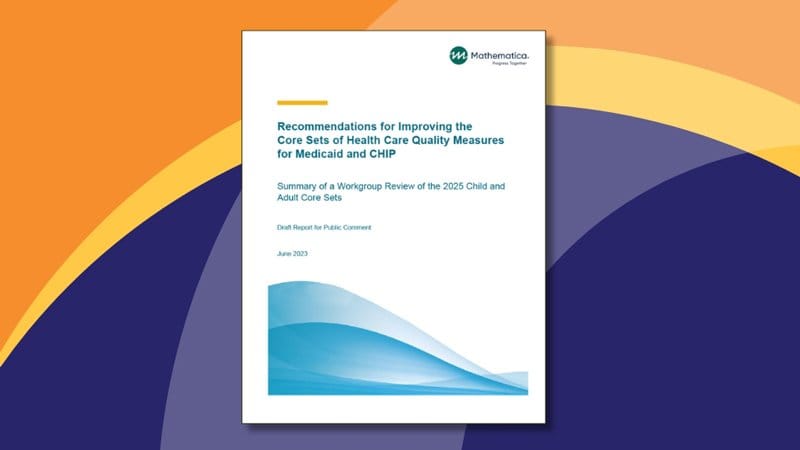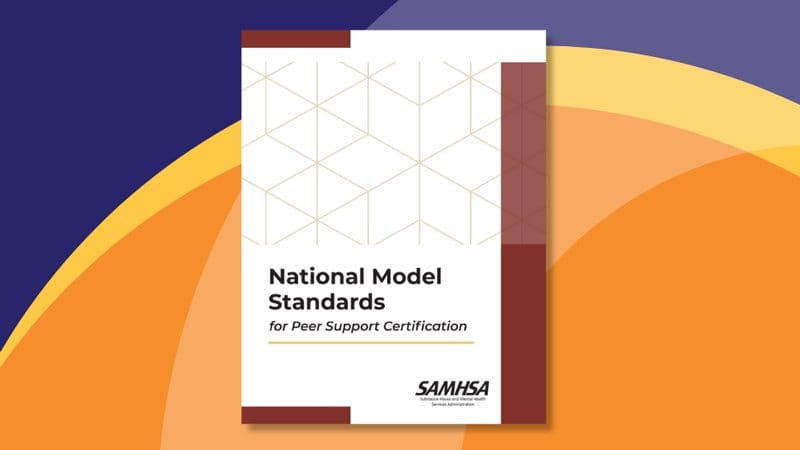2025 Medicaid Adult Core Set Quality Standards Comment Letter
Medicaid utilizes the “Child and Adult Core Sets,” a set of quality measures, to measure the access and quality of care and to improve the quality of healthcare. Mathematica convenes the Child and Adult Core Set Annual Review Workgroup (“Workgroup”) to review and make recommendations for stronger measures. Joy Burkhard, our Executive Director, is a member of the Workgroup. This year’s Workgroup reviewed the 2025 Child and Adult Core Sets.
Our work shaping and reporting on national mental health policy is made possible through a 2020-2024 capacity grant from the Perigee Fund.
The Policy Center for Maternal Mental Health and the undersigned maternal health organizations submitted the following letter, agreeing with the Workgroup’s recommendation to include in the Adult Behavioral Health Core Set the Postpartum Screening and Follow-up HEDIS measure and urging CMS to also include the Prenatal Depression Screening and Follow-Up measure, despite the fact this measure was not reviewed by the workgroup.
Learn more about the maternal mental health HEDIS measures here.
See below for the letter, which was co-signed by four partner organizations.
August 3rd, 2023
RE: Public Comment on the draft report of the 2025 Child and Adult Core Sets Review Workgroup
Dear Child and Adult Core Set Annual Review Workgroup,
The undersigned organizations are grateful for the opportunity to provide feedback on the draft report of the 2025 Child and Adult Core Set Review Workgroup (“the Workgroup”). Joy Burkhard, the Policy Center for Maternal Mental Health’s Executive Director, is a member of the Workgroup, and on behalf of the undersigned organizations, we would like to provide feedback on the recommendations regarding maternal mental health.
As noted in the report, “the Workgroup identified domain-specific gap discussions during the 2025 Child and Adult Core Sets Annual Reviews in the maternal and perinatal health field as prenatal screenings for depression and mental health, contraceptive counseling, and maternal health outcomes.”
The undersigned organizations agree that each of these measures should be prioritized and that prenatal depression screening is as important, if not more important, than depression screening during the postpartum period. This is because research has demonstrated up to 25% of women will suffer from prenatal depression. 1 Women with untreated depression during pregnancy are at risk of developing severe postpartum depression and suicidality and of delivering premature or low birth weight babies. 2
Depression during pregnancy can result in alterations to the DNA of the developing fetus. In this case, the mother transmits the trauma and stress of the psychological condition that she is experiencing into the biology of her offspring. Therefore, decreasing the rates of fetal exposure to prenatal depression or anxiety is essential in protecting the next generation. 3,4
Workgroup Recommendation: The workgroup reconsidered the Postpartum Depression Screening and Follow-Up, which “measures the percentage of deliveries in which members were screened for clinical depression during the postpartum period and, if screened positive, received follow-up care. Two rates are reported: a depression screening rate and a follow-up on positive screen rate.” This measure was specified for the HEDIS Electronic Clinical Data System Measure (ECDS) reporting measure that was recommended by prior Workgroups to add to the Core Set. ECDS is a standardized reporting method, created by NCQA, to report electronic clinical data for HEDIS. The Workgroup confirmed their support for adding the Postpartum Depression Screening and Follow-Up ECDS measure to the Child and Adult Core Set.
Feedback: The undersigned organizations commend the workgroup and highly encourage CMS to adopt this measure. We recommend that the behavioral health measures of 1) prenatal depression screening and follow-up and 2) postpartum depression screening and follow-up be added to the adult core set. Since these are behavioral measures, they will be mandatory for state reporting in 2024.
Workgroup Discussion: The Workgroup discussed the removal of the measure Screening for Depression and Follow-Up Plan: Ages 12-17 and Age 18 and Older, but ultimately decided to keep it in the 2025 Child and Adult Core Sets. They suggested the removal because there have been significant challenges to data collection, such as accessing EHR data and underreporting of depression screenings in claims. Additionally, there are concerns about public reporting of the measure because of the poor data quality in some states. The workgroup decided not to remove the measure because of the rise in rates of suicide, depression, and other mental health conditions in the U.S. They also agreed not to remove the measure without a replacement measure.
Feedback: The undersigned organizations commend the workgroup for this decision and strongly encourage CMS to follow this recommendation.
The undersigned organizations are grateful for this opportunity to provide feedback and are appreciative of the Workgroup’s dedication to improving health data measurement.
Sincerely,
Association of Maternal and Child Health Programs
Maternal Mental Health Leadership Alliance
Mental Health America
Postpartum Support International
The Policy Center for Maternal Mental Health



